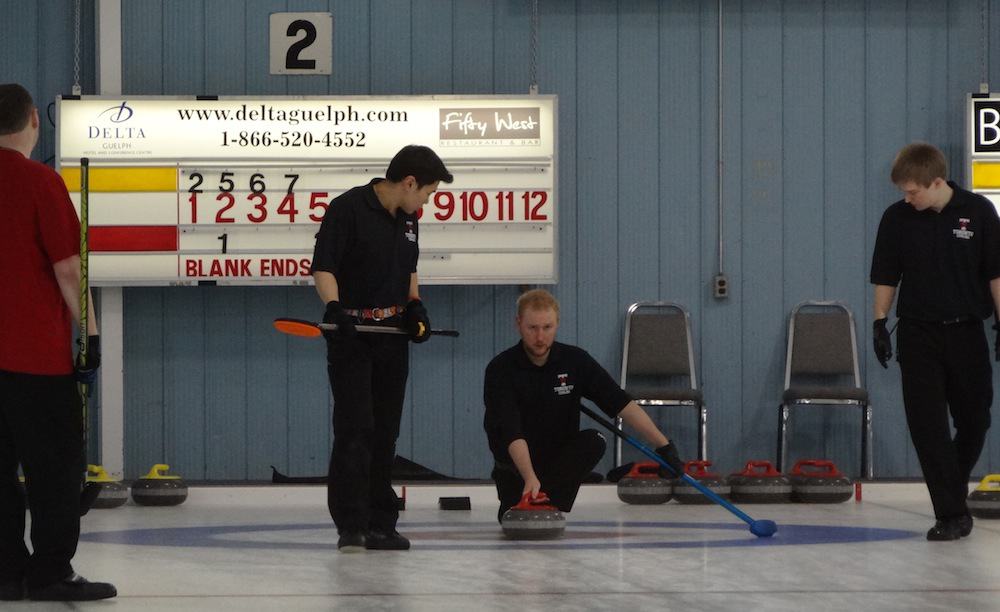The University of Toronto Varsity Blues curling team looks to improve on last season, when both the men’s and the women’s teams just missed playoff spots. Led by head coach Scott Jenkins and several mature and experienced athletes, the Blues are in a position to do just that.
Jenkins, who has been curling for 23 years and coaching at U of T for nine, played for U of T while completing his bachelor’s degree, and won the Canadian University Championship in 2004. After graduating in 2005 with an Honours BA from Woodsworth College, Jenkins began coaching the Blues as an assistant coach before becoming head coach the following season.
“I really enjoy the coaching aspect of the game. I no longer play competitively, but the coaching allows me to stay actively engaged and involved in the game at a high level,” said Jenkins.
The rosters are led by their skips: Evan Lilly on the men’s team and Danielle Bourque on the women’s. Lilly, a graduate student in the Faculty of Medicine, was an Ontario curling champion while playing for Western University during his undergrad; his final victory as a Mustang came against U of T. Bourque, a past player in British Columbia and the Maritimes, brings valuable experience to the team.
Coach Jenkins notes that the intelligence and maturity required by their demanding programs carries over to their curling game, making them strong leaders on the ice.
“The teams look up to Evan and Danielle because of their play-making and strategy,” said Jenkins on his leaders. “They both have made key shots in big games.”
Jenkins also noted that the other players on his teams have similar skill levels, and because of the fact that U of T curling attracts many graduate students, the team finds itself stacked with mature and smart curlers.
“Having smart players is key as strategy is an important aspect of curling,” explained Jenkins. “On this year’s team, we have three medicine students, two engineers, and one pharmacy student.”
Another positive of having many graduate students on the roster is that they bring curling experience from all over, including from other schools in the province. On this year’s roster, there are three athletes who curled at other Ontario universities during their undergraduate education before coming to U of T.
“This is great for me because they know the level of competition required before joining the team,” explained Jenkins.
However, the teams have several younger players on their roster — players who Jenkins sees as representing the future of the school. But one thing that will ensure success for U of T curling in the future is the experience and maturity brought to the ice by the older graduate students.
“As the school continues to grow/maintain the reputation for its graduate programs, this will ensure a steady stream of older athletes to provide a mix of ages, maturity and experience,” explained Jenkins.
With all this talent on the rosters, Jenkins is optimistic about this season, despite failing to qualify for the playoffs in the 2012–2013 season. A strong team on paper along with good results during their weekly league’s competition is proving to Jenkins that these goals are indeed feasible, but he feels that their next exhibition series at Brock University January 25–26 will be a great time to assess their expectations for the season.
“This would be our first true test of the season and show the teams where they stand against the other universities,” he explained.
After a long season, lasting from October to April, the Blues might have enough talent and experience to reach their goals of making the playoffs at the provincial and national levels.


